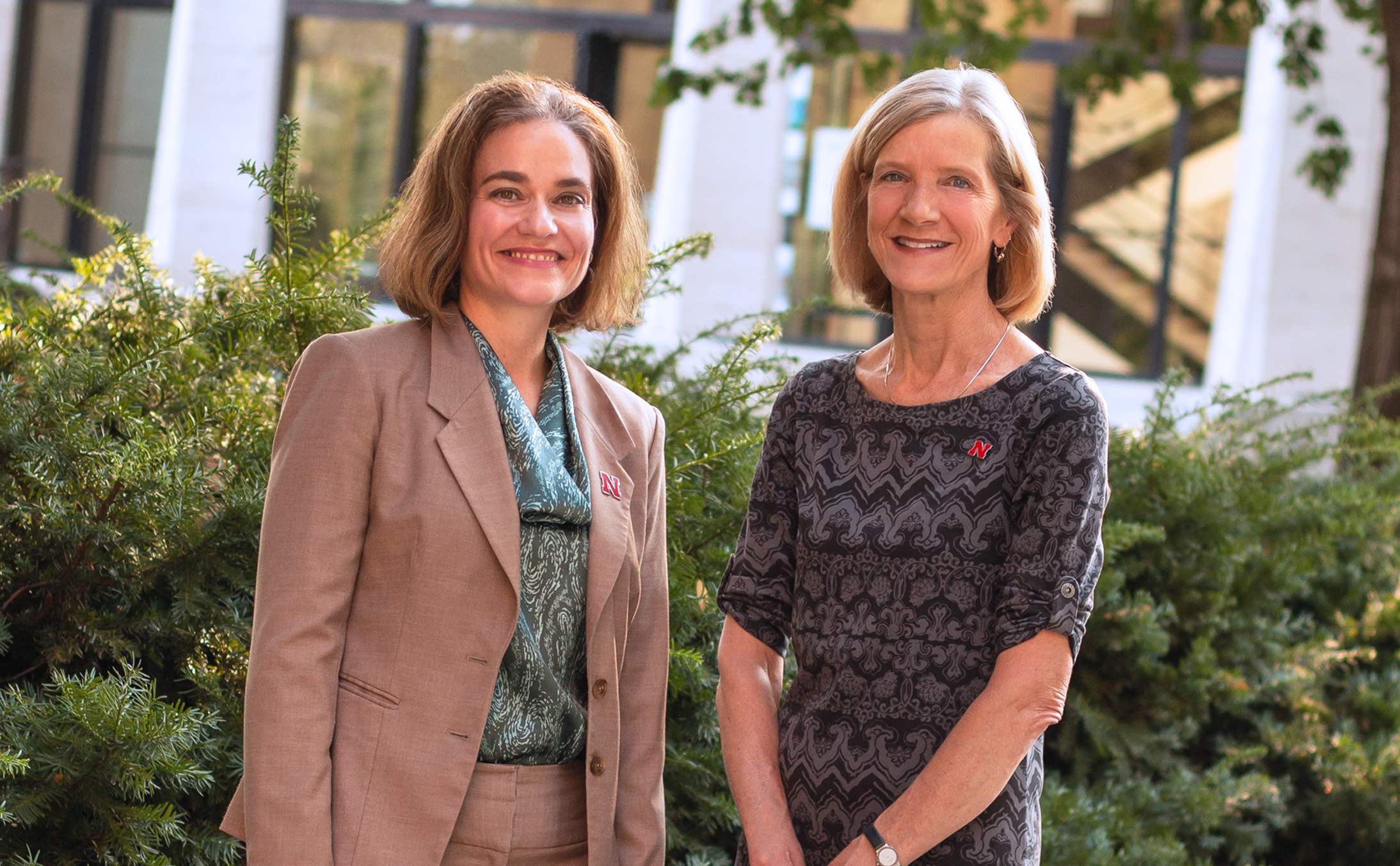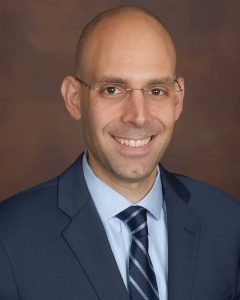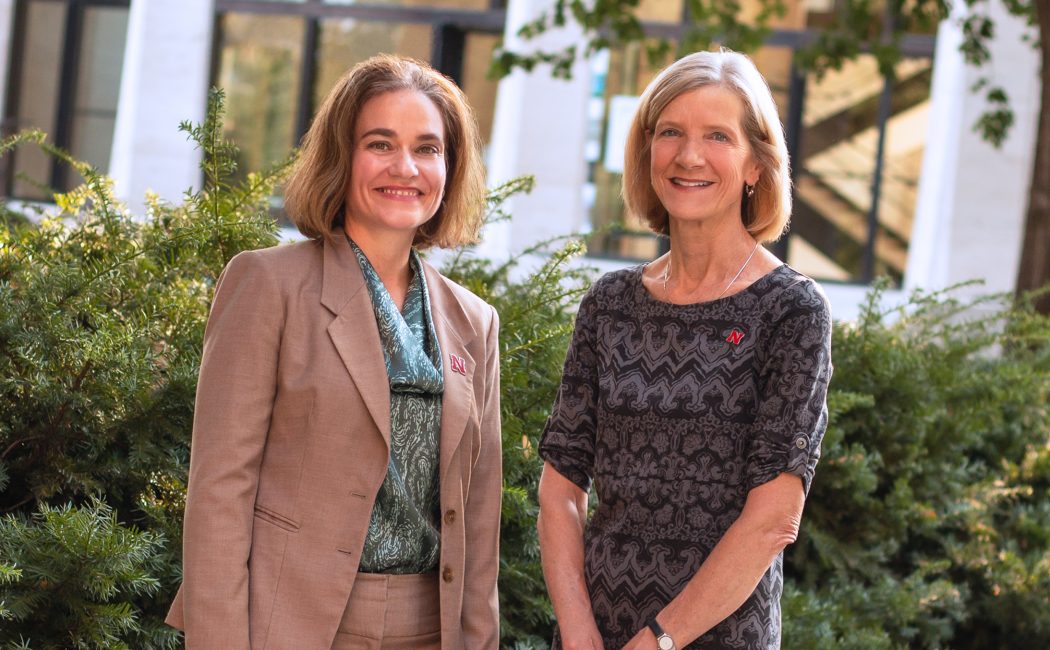
A family-school intervention program that has seen success in Nebraska and surrounding states is expanding its reach.
Susan Sheridan, director of the Nebraska Center for Research on Children, Youth, Families and Schools, and Amanda Witte, CYFS research assistant professor, are working with University of Wisconsin researchers to bring the Teachers and Parents as Partners (TAPP) intervention to schools in their state, along with ongoing studies in the region.
Previously known as Conjoint Behavioral Consultation, TAPP is a research-based, problem-solving and decision-making intervention developed by Sheridan and other Nebraska researchers that builds on student strengths and fosters collaboration among parents and teachers. It has been shown to enhance students’ academic, behavioral and social outcomes, and strengthen parent-teacher relationships.
Sheridan said the continued growth of the TAPP program, with studies in Nebraska and Colorado — TAPP para Familias Latinas and TAPP Online — and now the addition of TAPP Wisconsin, will provide “an excellent window into the benefits of in-person vs. online training programs.”
“Conducting these studies simultaneously gives us an opportunity to learn about best practices for providing professional development for school-based specialists in the areas of family-school partnership and behavior intervention,” she said. “Further, because the program is being implemented by practitioners in their own schools, there is an opportunity for much greater impact.”
For the TAPP Wisconsin project, Sheridan and Witte are training school-based practitioners — counselors, psychologists and social workers — to deliver the intervention. Researchers will provide workshops, observations and coaching to specialists to promote the sustainability of evidence-based practices by integrating TAPP into schools’ standard student support structures.
“This intervention is aimed at supporting positive social-emotional health and wellness in children and youth,” Sheridan said. “We do that by supporting families and educators. This is primed to prepare school-based practitioners in child mental health.”
The project will be implemented in 60 schools over two years to include 720 students in the Madison Metropolitan School District and Milwaukee Public Schools. The project’s scope within two major school districts sets it apart from previous TAPP studies, Witte said.
Implementation began with the first cohort of practitioners in summer 2022, with their casework beginning in the fall 2022 semester. The process will repeat in 2023 with the second cohort. Graduate assistants and TAPP coaches will help with implementation training and support.
The project is funded by the Institute of Education Sciences, with the CYFS portion coming from a subaward from the University of Wisconsin.

The Wisconsin project’s principal investigator is Andy Garbacz, associate professor of educational psychology and co-director of the School Psychology Program–Department of Educational Psychology at the University of Wisconsin.
Garbacz earned his doctorate at the University of Nebraska–Lincoln. During his time at Nebraska, Garbacz worked on the first large-scale randomized trial of TAPP and has been involved with TAPP studies throughout his professional career.
Sheridan and Witte will oversee collection of data relating to fidelity — the degree to which the school-based specialists are able to implement the intervention as designed — and will assess participants’ satisfaction with training and coaching.
The Wisconsin’s intervention’s effectiveness will be evaluated by the American Institutes for Research, separating the evaluation from the team that designed the intervention.

TAPP Online is a five-year, $3.8 million project is funded by a grant from IES. It is being co-led by Sheridan, Witte and Lorey Wheeler, CYFS research associate professor.
The current efficacy trial of TAPP Online includes 30 rural school-based specialists, or consultants, in Nebraska and Colorado, and 240 students. Through the virtual professional development (VPD) platform — modules consisting of narrated PowerPoint slides, video examples, practice guides and meeting protocols — consultants will learn how to implement TAPP and develop family-school partnerships in their own schools.
As consultants learn TAPP, they are paired with coaches who provide remote support and guidance. The coaches and consultants collaborate to ensure TAPP services are being delivered as intended, and to ensure students benefit from the intervention.
Along with the VPD platform, researchers are developing online coaching protocols and family-school behavioral toolkits comprised of several interventions and strategies to share with collaborating educators.
The ultimate goal of both TAPP Online and TAPP Wisconsin, Sheridan said, is to identify direct benefits for school practitioners — and indirect benefits for students, parents and family-school partnerships.
“The real benefit will be the many other students, teachers and families that a trained TAPP consultant will be able to serve,” she said. “We expect as they learn and deliver TAPP and see its benefits, they will begin to use it much more broadly. It’s a matter of sustaining the intervention to benefit many others well into the future.”
Learn more about TAPP Online and TAPP Wisconsin in the CYFS Research Network. This project aligns with the UNL Grand Challenges of early childhood education and development.
